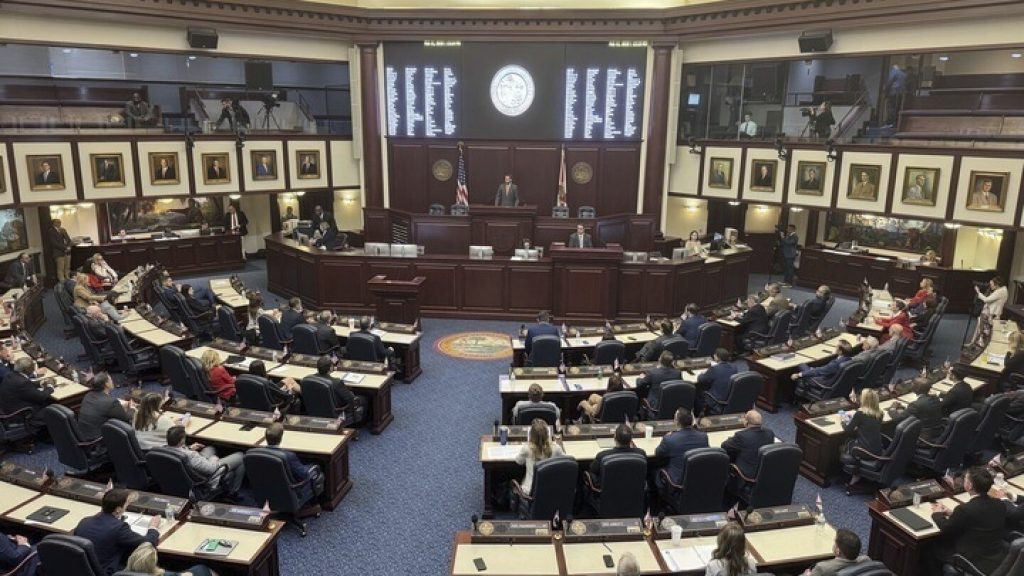What’s Behind the Statehouse Showdown
Florida Governor Ron DeSantis, known for his influence in Tallahassee, has found himself embroiled in an unusual political tussle with the state’s Republican-led Legislature. This showdown began when DeSantis, a potential 2028 presidential candidate, challenged Donald Trump for his party’s nomination. In a bold move, he ordered lawmakers to convene a special session on immigration last month. However, instead of aligning with the governor’s agenda, the lawmakers not only rejected his proposals but also advanced their own, which would have significantly reduced DeSantis’ power over immigration matters. DeSantis, critical of the Legislature’s initial proposal, likened it to putting the "fox in charge of the hen house," suggesting that farmers would continue to hire undocumented immigrants. The governor pledged to veto the legislation, labeling it as "weak," and threatened to back Republican primary challenges against supporters. However, after days of negotiations, a compromise was reached, and DeSantis praised the new package as an "aggressive bill that we can stand fully behind."
What’s in the Bills
The compromise package unveiled this week includes many of the Legislature’s original proposals, with a primary focus on enhancing state and local participation in federal immigration enforcement. One significant change is the removal of a provision that would have created a chief immigration officer role held by the state’s agriculture commissioner, a position DeSantis staunchly opposed. Instead, the bill proposes a new state board of immigration enforcement, comprising the governor, the agriculture commissioner, and the other two members of Florida’s Cabinet. The package also includes several measures championed by DeSantis, such as making it a state crime to enter Florida without legal authorization and requiring pretrial detention for undocumented immigrants charged with forcible felonies. Additionally, it increases criminal penalties for undocumented immigrants who commit crimes and mandates the death penalty for those convicted of capital offenses. The bill also repeals a state law that allowed undocumented students to qualify for in-state tuition at public colleges and universities.
How Much Would This Cost?
The compromise legislation comes with a price tag of $298 million, a substantial reduction from the $515 million proposed earlier. The budget includes funding for over 80 new positions dedicated to immigration enforcement, as well as grants for local governments to cover expenses such as new equipment and staff training. The package also provides bonuses for officers who assist in federal enforcement efforts and reimbursements for leasing detention facilities to the federal government. Notably, the compromise bill eliminates a controversial program initiated by DeSantis that used millions in taxpayer dollars to transport migrants out of the state. While DeSantis’ allies had sought $350 million to expand this program, the new proposal envisions a retooled version that would require federal officials to "specifically request assistance" for the state to transport migrants, ensuring compliance with federal law.
What’s at Stake Politically
The ongoing debate has exposed a significant rift between DeSantis and many state GOP legislators, highlighting the legislators’ willingness to challenge the governor’s authority. This tension is particularly noteworthy given DeSantis’ previous influence over the Legislature, which he wielded more effectively than any governor in recent Florida history. Senate President Ben Albritton downplayed the tension, stating that he does not anticipate any carryover into the regular session beginning March 4. "We’ve worked our way through that," Albritton said. However, in the House, lawmakers are preparing to consider overriding DeSantis’ budget vetoes from last year—a move that Florida legislators haven’t exercised in 15 years. This action underscores the Legislature’s readiness to challenge and potentially overpower the governor, signaling a shift in the power dynamics within the state.
The Broader Implications
The political maneuvering in Florida’s special session on immigration reflects a broader struggle within the Republican Party, particularly as DeSantis positions himself for a potential presidential run in 2028. The compromise reached with the Legislature, while not entirely to DeSantis’ liking, demonstrates the power of negotiation and the complexities of governing in a highly polarized environment. The legislation, if passed, could have far-reaching implications for undocumented immigrants in Florida, potentially exacerbating the challenges they face. It also sets a precedent for how state governments might align with or resist federal immigration policies, depending on the political landscape and the priorities of their leaders.
Conclusion
The special session on immigration in Florida has been a testament to the evolving political landscape and the showdown between Governor Ron DeSantis and the state’s Republican lawmakers. The compromise reached, while not without controversy, highlights the importance of negotiation and the delicate balance of power in state governance. As the debate continues, the outcomes will not only affect Florida’s immigrant community and state budget but also have broader implications for the Republican Party’s internal dynamics and the future of immigration policy in the United States.












